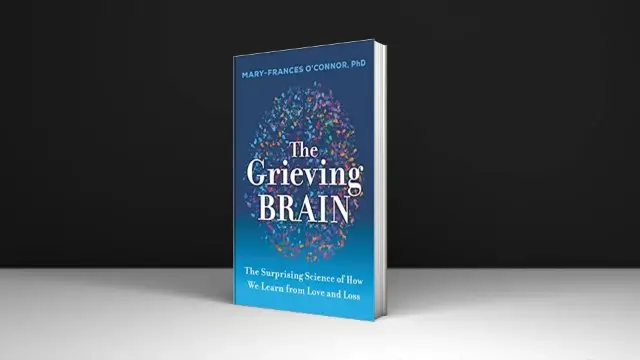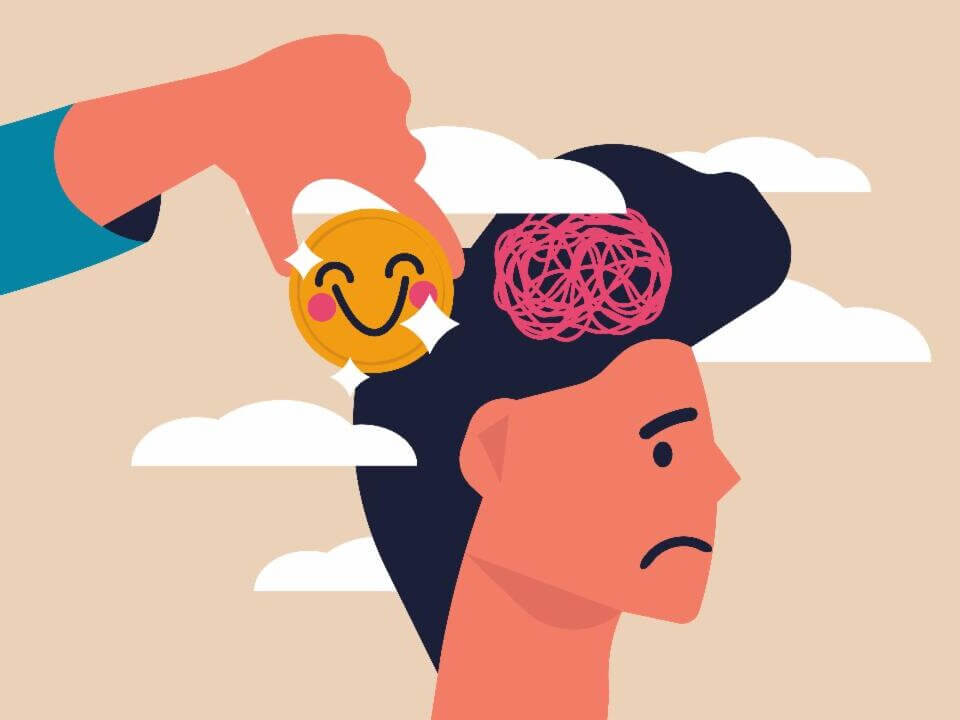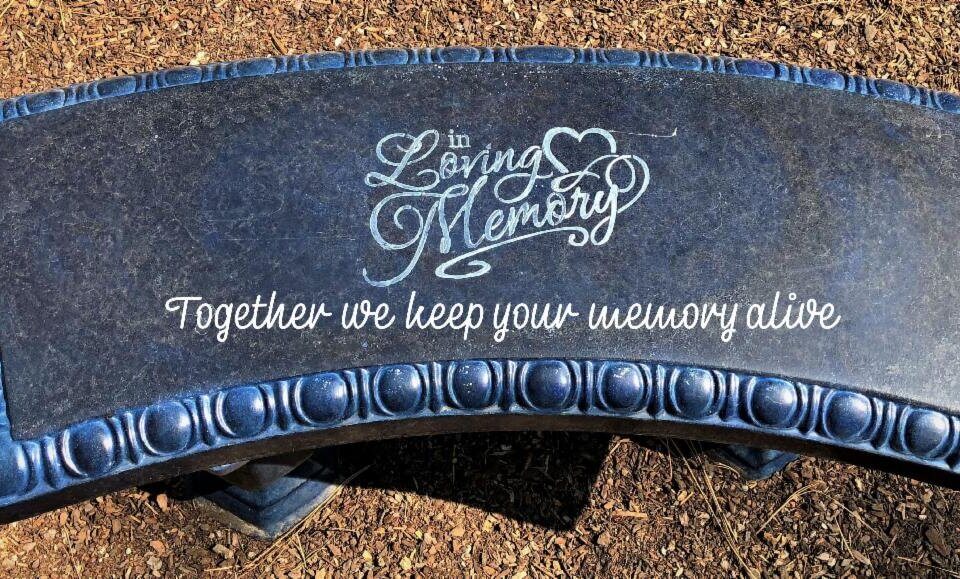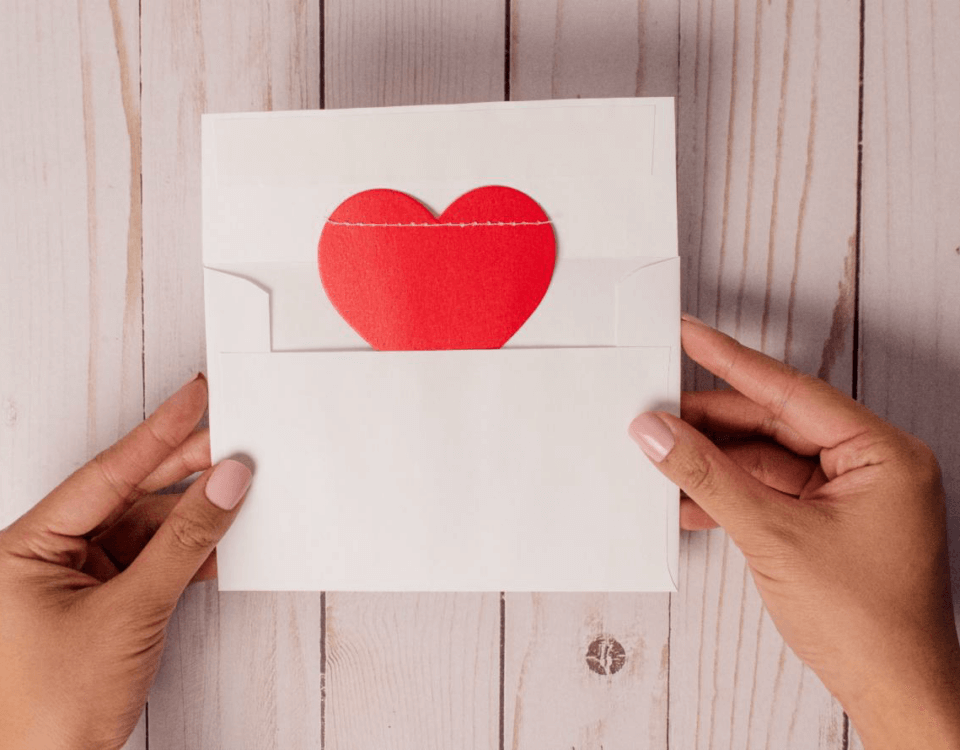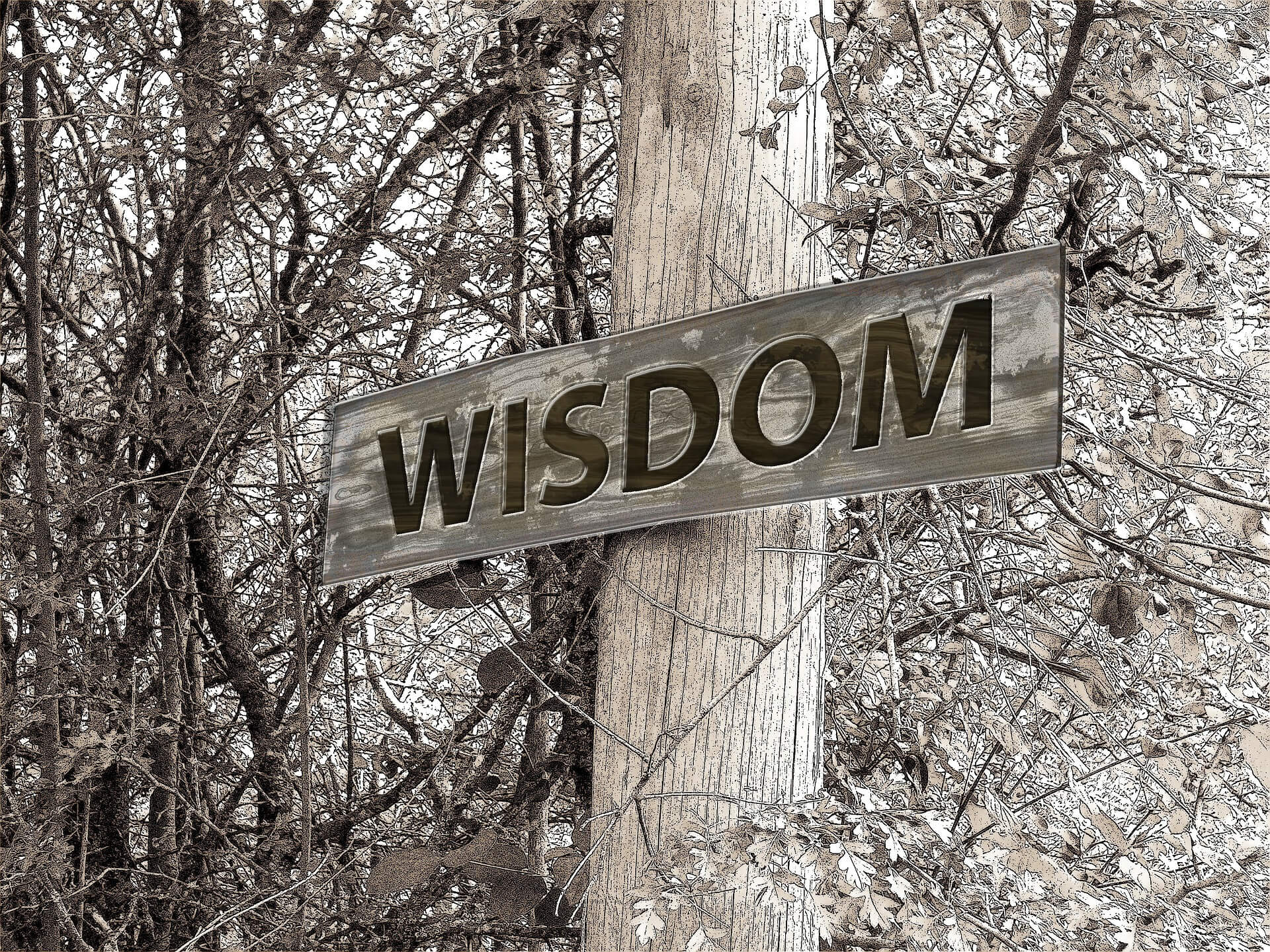
Wisdom Engendered: Study Finds Men and Women Have Different Strengths
March 4, 2022
Revisiting A Family’s Message
September 20, 2022Share This Article
The Grieving Brain Interview: Part I and Part II 2022
The Grieving Brain
PART I
An Extraordinary Interview
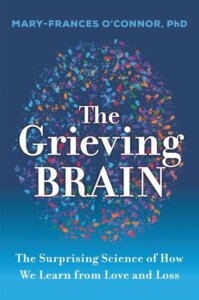
With Dr. Mary-Frances O'Connor
and Susan Whitmore,
griefHeaven Founder and CEO
"With love, our neurons help us form attachments to others;
with loss, our brain must come to terms with where our loved
ones went, and how to imagine a future that encompasses
their absence."
INTRODUCTION
By Susan Whitmore
Watch more videos: Watch Video Interview
After years of research, Dr. O'Connor wrote and recently launched her groundbraking book, The Grieving Brain. The Surprising Science Of How We Learn From Love And Loss.I believe what goes on in our brains after a loved one dies is such a profund significance that I am dedicating both April and May griefHeaven newsletters to this interview.
With this book, Dr. O'Connor, who has devoted a lifetime to researching effects of grief on the brain, opens a whole new window into a hallmark exeperience of being human-grief. Making cutting-edge neuroscience easily accessible, she guides us through how our brains process both love and grief.
Significantly, Dr. O'Connor debunks Kubler-Ross'
enduring idea of the "Five Stages of Grief" and
sets a new paradigm for understanding grief
on a neurological level.
With pitch-perfect anologies and beautiful graphics. The Grieving Brain is both educational and entertaining. I highy recommend this book for all to read. In fact, griefHeaven has made this reuired reading for our griefHeaven support group staff.
More about the book below.
 Meet Mary- Frances O'Connor, Ph.D.
Meet Mary- Frances O'Connor, Ph.D.
Mary-Frances O'Connor, Ph.D is an associate professor of psychology at the University of Arizona, where she directs the Grief, Loss and Social Stress (GLASS) Lab, which is investigates the effect of the grief on the brain and the body. O'Connor earned a doctorate from the University of Arizona in 2004 and Completed a fellowship at UCLA. Following a faculty apponitment at UCLA Cousins Center for Psychoneuroimmunology, she returned to the Unicerstiy of Arizona in 2012. Her work has been published in the American Journal of Psychiatry, and Psychological Science, and The Washington Post. Having grown up in Montana, she now lives in Tucson, Arizona. For more information go to About Dr. O'Connor.
INTERVIEW
PART I
Watch entire video interview here:
Watch Interview
Why Study the Grieving Brain?
SW: What made you get into studying the grieving brain? It was such an innovative and new area at the time which no one was delving into.
MF: I have long been fascinated by the brain and that the brain takes these relationships that we have in the world and turns those into what we call the gray matter that we carry around in our brains. That has always been so mysterious and fascinating to me.
But I have to be honest—it's also because my mother got sick when I was 13 and then died when I was 26, and that experience gave me the ability to sit with people who were grieving and not have to back away from their grief. That enabled me to do interviews that got into how people were feeling and what their experience was. I could then relate to the neuroimages—brain images—and it was that capacity to be with others, having had my own grief, that enabled me to stay in what the phenomena was that we were looking at.
SW: I would also imagine that at first it was difficult for you to get people to buy into you doing that kind of research. Was it difficult for you to get people to put the money into these studies—to give it their blessing?
MF: It was not considered an area for research.
SW: But you persevered. That must have been challenging.
MF: Absolutely. In fact, the first ethics board was very concerned that I would be asking people about their grief and losses.
I reminded the ethics board that in other studies we ask people about all sorts of things, such as their depression and suicidal thoughts, so how can grief not be a topic that we can talk about with people? Interestingly, the people who never had a problem with me studying it were bereaved people. They wanted to share their experiences, and they wanted to be able to contribute so that the scientific process might learn something and help others.
SW: That is what we run into with grants—little or nothing available for grief. Though, since the pandemic, which has been such a horrible thing, we have seen some blessings because it has opened people's minds and hearts about death and grief and started conversations sorely needed.
MF: That's right … and hopefully more research.
SW: Yes, please!
Death of Child and Significant Losses
SW: It is known by all specialties across the board, and anecdotally we see it in our work, that losing a child is considered the worst loss imaginable. In fact, at one point I recall the DSM stating, "The death of a child is considered a catastrophic stressor unlike any other." In your work, have you found brain evidence as to this?
MF: You know, I think that something that the neurobiology of grief has taught us is that, when there is a bond first that gets encoded in the brain, and then grief follows because of having that bond, it means that it is those with whom we are closely attached that cause this deep grief in us. We all know what that deep bonding is like, whether it is falling in love with a spouse or falling in love with a baby. That bonding time changes the structures of our brain, so when we think about the losses that cause the most intense grief, we know it is those who are the closest to us, and clearly the death of a child is one of those.
For instance we don't have any studies yet that compare a group of people who have lost say a spouse with a group of people who have lost a child. But we know clinically, just as you described, that losing a child is a tragic, tragic loss. We know that in terms of the bond.
Interestingly, the part of the brain that is used
to encode that bond with a romantic partner
is actually the same part of the brain
that is used to encode the bond with a child.
SW: That is so interesting.
MF: Isn't it? And I think some of that is because those are relationships that are critical for survival—our own survival and the survival of the other.
If you look at other relationships, such as sibling relationships, which can also be very close but don't have that survival and caregiving component built in, the loss is different.
To answer your question, then, I think it is likely that we would see something unique within that brain region that has to do with the death of a child. I'm not sure how distinct it would be from the death of a spouse, but that's why we do studies, right?
Certainly the intensity of caregiving for a child is more than for a spouse—caregiving for a child is a more pure relationship. That's the important piece because somehow the death of a child feels like a failure. It is that sort of inherent caregiving and needing to provide for that child's survival that, when that child dies, cuts us deeply.
SW: I've been watching this live eagle cam covering the lives of these eagles in Big Bear who are caring for their eaglet. A while back, the mother eagle was on the nest when one of four ravens who had been flying around in circles above the nest taunting and threatening the life of the eaglet actually landed on a branch near the nest. The mother, Jackie, was stuck sitting on the eaglet to protect it so she could not fly off to handle the threat. She was going out of her mind, screeching, squealing, and calling for the father eagle to come and help. The father did show up, and he chased off the ravens. (Click on link below to watch the happy ending.)
So with animals you see that innate protectiveness as we do with humans.
We seem hardwired, when we give birth, to make sure that offspring survives; when it doesn't, our brains say, "You failed!"
MF: That's right, and it's brutal! Those neurochemicals and hormones are really trying to motivate us to find that child when they're not in our presence, because that is what you would do if they were alive.
Death is a very abstract thing for the
brain to try and wrap its head around,
so to speak. So, for a long time,
part of our mind is still searching for
them so we can care for them.
Meet Mother and Father Eagles, Jackie and Shadow 
Here you can watch the mother, Jackie fiercely protecting her
eaglet from raven by "wingslapping" it.
WATCH Mother Jackie fiercely
protecting her eaglet from raven
Live Eagle Cam
Don't Worry. Happy ending!
Guilt
SW: Guilt is a big part of what grieving people go through, but the guilt I want to discuss here is the guilt people feel when they actually feel happy or have a good day after their loved one has died. Is there a brain answer to why that is?
MF: I'm not sure that there's a brain answer yet. Guilt is not an aspect of grief that we focused on in our neuroimaging studies. But I can say that I also recognize this experience that you are talking about, and it is often not the initial feeling that trips us up.
Sometimes it isn't the sadness, happiness, or intensity of what we initially feel but in how we react to being a person who has that feeling of guilt. For instance, if we feel relief after a loved one dies, then we often feel guilt for having felt relief.
Sometimes a similar thing happens with the thought, How can I possibly be enjoying this when my loved one isn't here to enjoy it as well? The way I feel about that is that each person comes to their own understanding, and my understanding might not be helpful to someone else, but I think of it this way:
It's very comforting to me to think that
my brain has changed by having been
in a loving relationship. My brain
is literally different because I loved
someone, and they loved me.
So I carry that physical part of them—of us—in my own brain, and it is through that brain that I also perceive the world. In some ways, they are always with me. As I am having positive experiences, they are with me because they impact how I perceive things in the world.
SW: That is a beautifully precise way to think of the deep impact loving another has had on us.
I Will Always Be Here ...
SW: In your book, The Grieving Brain, you talk about "two mutual beliefs," that our loved one is gone and, at the same time, that they will be coming home. Would you speak more about that?
MF: When we form a bond with someone, a part of the encoding of that bond is: I will always be here for you; you will always be here for me, with an emphasis on the "always" part. And while people are alive this is very helpful. They don't have to be in our presence for us to know they are out there in the world. Otherwise, it would be impossible for us to send our children off to school every day or kiss our spouse goodbye every morning. You have to have that truly deep-seeded belief that you will come back together again at the end of the day.
The trouble is that the brain isn't really
set up to expect the death of a loved
one. In fact, death is a very rare
event, thankfully.
So when I talk about these two pieces of information that the brain is trying to use at the same time, I am saying that you know that your loved one has died because you have the memories of being at the bedside, getting that phone call, or being at a funeral or memorial. Yet this belief that they will always be there persists as well. And those two things of course can't both be true.
I think this creates a lot of the disorientation that happens for people after the person has died, especially initially. The brain really is a prediction machine. It functions by trying to take the information it's had in the past thousands and thousands of days and predict what will happen next. So when your phone rings, it is the natural prediction that it will be the person that you have picked up the phone to speak to over and over again. What happens is that you actually have that experience of he or she is calling me right now, and then you remember that can't be true.
That's when the intensity of the grief erupts.
SW: Can you explain how and why our brains do that, and is there an effective way of speeding up the process of knowing that our loved one is gone and never coming back?
MF: No and a little bit yes.
You know people say that time heals,
and I don't think that is really
accurate, but to some degree
experience heals.
And experience takes time, right? You can't force your brain to learn new things. It just takes some period of time and experience for us to be able to make new predictions about the world.
Now we can get in the way sometimes of our brain learning new things, and one of the ways that we end up doing that is through avoidance.
Our brain needs lived experiences to update, to understand questions like Who am I now without this person? How do I operate in the world without my spouse? How am I a parent if my child has died? You need experiences in order to learn what the answers are for you
When we avoid conversations or people or things that remind us of the person who is gone—and while doing so is understandable because it might be a way of preventing the overwhelming pain of that loss—in the long run, it doesn't give us as many opportunities to learn what life is like now, without that person here.
SW: That is another reason why we need to get out and fully embrace life as soon as possible.
MF: Yes, and I am a person who believes that there is a place for avoidance and a place for denial because grieving is incredibly hard on our brain, our mind, and our body, so sometimes we need a break. The problem comes when we keep using that tool, and we don't use any of the other coping tools, such as when we don't also seek out support, we don't also think about fond memories, and we don't also try new activities.
It helps to have a big tool kit of coping
strategies, but avoidance should just
be one of them. But it has to be
one that is not used too often.
SW: Exactly. There were times the first couple of years after my daughter Erika's death when I would find myself in a place where sliding into that intense pain was not the right time, and I would say to myself, "Not now, Susan." But it took a lot of work before I could control it like that.
MF: I use an example in the book of being at your child's soccer game, and you need to tell yourself that you are going to be right there, in that moment, cheering for him, and you are just going to pretend that none of the loss has happened so you can be fully present for him.
Complicated Grief (Prolonged Grief Disorder)
SW: Can you address this idea of "complicated grief," or, as it is now known, "prolonged grief disorder"?
As you know, I have a difficult time with the overall concept because the term implies something is abnormal if someone is having grief difficulties after a year. Most of the people I work with who have had significant losses are still deeply grieving after one year. Why have this criteria at all? Is it a guideline for research purposes, therapy insurance, or just something to give clinicians a grasp on whether a person needs additional help, or all of those?
MF: I also think it is somewhat all of those, but I think part of what happens when people hear that this is a disorder or that there might be intervention is that they misunderstand and think with intervention we are trying to take grief away. That's not actually what intervention intends to do.
The reason I like the term complicated grief, although it is now called prolonged grief disorder, is I think of it like the healing of a broken bone. When you break your leg, you're not actually doing anything to knit those cells back together because your body is doing that as part of its natural healing process. Yet you might need to provide support, so you might put your leg in a cast or use crutches to support yourself as you're healing. Yet complications can occur, so you might end up with a secondary break to the bone or an infection. In those cases, it can be helpful to have intervention to get you back on the trajectory of healing.
This analogy then to complicated grief is that, when we're able to identify people who have really gotten derailed in their grieving, such that there are things getting in the way of their natural healing process, we can step in and help. We know this intervention works because we have specific criteria that we test that shows it helps. Doing so isn't trying to take their grief away but rather to help them gain skills to overcome the things that have derailed them so they can get back to that natural healing process.
SW: What's the criteria for complicated grief?
MF: Of course, there is this intense emotional pain and intense yearning for the person, but that's not all. Some additional criteria include things like feeling distant from those around you, feeling intense disbelief that this has happened, feeling that you're not sure what your role in life is now, and feeling that life has become meaningless. There are a few others as well, but in addition to all of those, it also has to disrupt your day-to-day life, really interfering with your day-to-day functioning such that you are unable to get dinner on the table or spend time laughing with your grandkids.
It also has to have been a year since the death happened. There is some debate about that because different studies show us different things. For example, at two months we can't predict who is going to have complicated grief at eighteen months, but in some studies we were able to predict who would have complicated grief after six months of grieving. Sometimes it is not until a year that we are able to predict. Because of that, the committee chose a year as the best empirical, but also culturally informed, timepoint.
Tools That Help the Grieving Brain
SW: We at griefHaven use techniques scientifically proven to be effective, tools that we know will help with various aspects of grieving from a brain perspective. For instance, we use meditation techniques that we know will help the grieving brain. Other such tools include getting regular exercise, experiencing more green in nature by going outside, and protecting oneself by not watching repetitive tragic images on TV. What are some tools you would encourage people to use?
MF: You have chosen fantastic tools to work with. We did a study recently looking at mindfulness meditation and then also something called progressive muscle relaxation. It was not designed originally for grief, but it is a method where you scan your body, contracting and relaxing various muscle groups. We found that by doing the scan exercise, people were able to achieve a state of relaxation.
SW: Is that the one where you go through the body tightening and releasing?
To learn this technique, visit here.
MF: Yes exactly. And we found that both mindfulness meditation and progressive muscle relaxation led to less grief over time. But actually the progressive muscle relaxation performed the best.
The reason we think that might be true is that, for many people, it is difficult to learn mindfulness meditation when they are already having trouble concentrating. And for many people, it's hard to figure out if they're actually meditating or if they're simply ruminating, which is not so great.
But the progressive muscle relaxation gives us a concrete thing that we can do that helps our body. So many of the tools that you mentioned really help your body relax, and that's an important part of the process.
SW: I've found that classic mindfulness meditation by itself is often less helpful because people start going to those painful places and re-living them. That's why we only use guided meditations. We start most groups with a guided meditation, and now we will be using the body scan exercise as well.
MF: That exercise is one that, once they have learned how to do it, they can apply in any situation. It also gives them a sense of a little bit of control over their experience. Having any control in a moment where you're just overwhelmed can be a good thing.
PART II
The Grieving Brain
An Extraordinary Interview
The New Science of Bereavement
 With Dr. Mary-Frances O'Connor
With Dr. Mary-Frances O'Connor
and Susan Whitmore, griefHeaven Founder and CEO
"I think we sometimes forget that having
attachment bonds—those people we love
so much—is critical for our survival, like
food and water, and our brain knows that."
INTRODUCTION
Read Part II of interview below or
watch entire video here: Watch Video Interview
Last month we brought you Part I of my extraordinary interview with Dr. Mary-Frances O'Connor. This month we bring you Part II.
After years of research and studies, Dr. O'Connor has written and recently launched her groundbreaking book, The Grieving Brain. The Surprising Science of How We Learn from Love and Loss. I believe that what actually goes on in our brains after a loved one dies is such profound and essential information that I have dedicated the April and May newsletters to this two-part interview.
Dr. O'Connor, who has devoted decades to researching the effects of grief on the brain, reveals a fascinating new window into one of the hallmark experiences of being human. She makes cutting-edge neuroscience accessible and guides us through how we encode love and grief.
Significantly, O'Connor debunks Kubler-Ross' enduring
idea of the "Five Stages of Grief" and sets a new paradigm
for understanding grief on a neurological level.
With beautiful graphics and easy-to-understand cogent language, I highly recommend everyone read this book. In fact, we have made it mandatory reading by all of our griefHaven support group staff.
 Meet Mary- Frances O'Connor, Ph.D.
Meet Mary- Frances O'Connor, Ph.D.
Mary-Frances O'Connor, Ph.D is an associate professor of psychology at the University of Arizona, where she directs the Grief, Loss and Social Stress (GLASS) Lab, which is investigates the effect of the grief on the brain and the body. O'Connor earned a doctorate from the University of Arizona in 2004 and Completed a fellowship at UCLA. Following a faculty apponitment at UCLA Cousins Center for Psychoneuroimmunology, she returned to the Unicerstiy of Arizona in 2012. Her work has been published in the American Journal of Psychiatry, and Psychological Science, and The Washington Post. Having grown up in Montana, she now lives in Tucson, Arizona. For more information go to About Dr. O'Connor.
INTERVIEW
PART II
Watch entire video interview here:
Watch Interview
Neuroscience is part of the conversation of our times.
By understanding the myriad aspects of grief, by focusing
in greater detail on how brain circuits, neurotransmitters,
behaviors, and emotions are engaged during bereavement,
we have an opportunity to empathize in a new way with
those who are currently suffering. We can allow ourselves to
feel grief, allow others to feel grief, and understand the experience
of grieving, all with greater compassion and hope.
Where Is My Loved One?
SW: When a grieving person keeps asking, "Where is my loved one?" after the loved one has died, how do they create a new mind map so that all aspects of the brain know the person is not coming back?
MF: It is fascinating that almost every religion gives us an answer to "where" our loved one is and when we will see them again. I think it is because of the intensity of those questions when someone dies that it feels vital to answer that question. For many people it means there must be an answer, and it gives them a belief about what happens after death. It's not my role to say what is the right answer to those questions, and many people find those religious answers comforting.
Also, that part of us is still trying to find
our loved one as though they are alive.
You have a lot of chemicals and
neuro-connections that are trying
to motivate you to do that.
Yet, at the same time, we know there is no map, right? They can't be found. So I think ultimately it is for us to recognize that it is a feeling we are having, it's natural, and it makes sense that we are having this feeling. This is one of the "after effects" of the depth of love you felt, and it's okay to have that loving feeling, and it also isn't going to enable you to find them on this physical plane.
So it helps if each person decides how to transform that question to perhaps think more in terms of, "How can I provide this love in other ways?" For instance, it can be giving to living loved ones or to animals, to nature, or in other ways that you can give out that same feeling of loving. For some people it may be talking with their loved ones in their minds because they know what advice their loved ones would give, how they would respond, and even what they would laugh about.
For some people it is developing a way to have conversations with them and bring them to mind in that way. And many people use particular locations for this, such as places where they think of their loved one being, such as the gravesite, because it means they can go there and remember them and talk to them and provide some connection as to where they might be in time and space.
Feeling Abandoned ... A Deeper Understanding
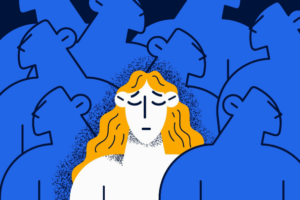 SW: A hurtful and aggravating issue that pops up for so many people with whom I work is why people are not there for those who are in deep grief after the service is over, the flowers have wilted, and everyone gets back to their lives. I initially
SW: A hurtful and aggravating issue that pops up for so many people with whom I work is why people are not there for those who are in deep grief after the service is over, the flowers have wilted, and everyone gets back to their lives. I initially
thought that perhaps much of it was simply that others did not understand the deep need for those who are grieving to continue having that loving support around them, and, most of all, just having someone who allows them to talk about their loved one and keep his or her memory alive. But after learning about "mirror neurons," I am wondering if that plays a role in why so many people seem to disappear soon after—that perhaps there is actually something going on in the brain that makes it too hard for some to handle the other person's pain.
MF: I think it happens for a number of different reasons.
I think one is that we have an empathic
response when we are around someone
who is having intense emotions.
For lots of people it brings up the fear they themselves have around experiencing grief or losing a loved one, and it is too difficult for them to bear. Perhaps they have not developed skills of how to manage that for themselves. And so it's too painful to be present with that and feel empathy, which is what creates the feeling in yourself. I think that's one of the reasons that it's very difficult for people.
I think a second completely different reason is that, for people who haven't experienced a particularly intense loss, they just can't understand what it's like. You know grief is actually so different than we expect it to be, and it's so much more intense than we expect.
Recently, I had an experience with a group of friends who had been golfing, and one of them just blew his stack. Everyone else was wondering what is happening? They all thought it was so bizarre for him to be acting that way. I said, "Guys, he just lost his mom four months ago." They said, "But he was so angry." I said, "Yes, that's one of the many normal responses to loss." So I think you are not always anticipating what it's going to feel like for that person who's going through intense loss.
SW: Does that empathy or compassion where we might feel things so deeply have something to do with mirror neurons, because I am fascinated by mirror neurons. Could you speak to that?
MF: I think it's easy to think of mirror neurons as being the source of all empathy and compassion, yet that's not quite how they work.
What we do know is that, when we see other people who are communicating an emotion, we often figure out what that emotion is by actually recreating it—simulating it in ourselves. That doesn't have to require mirror neurons, but it is a way that human beings understand what another person feels. And in order to do that you sort of have to feel a piece of it yourself.
That can be quite painful for people,
and, in that moment, they might not
know how to alleviate their own distress
or the distress of the other person.
I think the final reason is that in our society most people believe that the goal is to cheer up a grieving person. But really the goal is just to be with them and let them go through whatever it is they're going through, so they don't feel so alone. When we are trying to cheer someone up who is grieving, they often feel more alone because we're saying don't be who you are right now; be something else. For a person who is already feeling disconnected, by saying don't be who you are right now feels even worse.
SW: That is so powerfully true. You know, this information can be helpful to everyone, including those who are grieving and hurt or angry about those who aren't there for them. Maybe this knowledge will lead to a better understanding and hopefully open up the conversation between them.
MF: Absolutely.
Adapting to Loss
SW: In your research did you find that a certain percentage of people simply adapted in a healthy way to their losses without ever doing any therapy, any grief support work, or accessing medication?
MF: That's an excellent question.
There are no neuroimaging studies done on this, and I actually can't think of a study where they looked at people who had not used any of those types of interventions compared to people who had. Occasionally, they try to control for it statistically in a study, but that's not quite the same thing. So while we know that people are actually surprisingly resilient, we don't necessarily know if it's the people wo are reaching out for the most support who are the ones who are the most resilient.
I mean I do know there definitely are people who don't do any of these types of interventions and do adapt. But I don' think we have any sense of how many and what kind of people. Those are important questions.
SW: That would be an interesting study and seems like an important one.
MF: Absolutely. I learn a lot from people that aren't in the weeds every day doing grief research—people who, like you, have a ton of experience meeting people who are grieving and having grieved yourself. As a researcher, there are questions I have forgotten about or haven't thought of, and so I find it very useful to have conversations like this.
 Longing and Yearning
Longing and Yearning
SW: Your study you did back in 2008 resulted in a stunning outcome—very exciting—and I've spoken about it all over the United States. That study involved using functional MRIs (fMRIs) to look into the brains of those who were grieving, and the result included seeing a part of the brain light up that involved a "yearning" and "longing" for the person who died.
I personally experienced a depth of yearning for my daughter, Erika, that I could barely stand to live with. It took a long, long time for me to learn how to live with it. Can you talk about yearning more and how that ties in with loss?
MF: I think of yearning like I think of thirst and hunger.
Yearning to me is the heart of grief,
and it really is the motivation—the
desire—to see them again and for
things to be back the way they were.
The reason I make an analogy to hunger and thirst is because I think we sometimes forget that having attachment bonds—those people we love so much—is critical for our survival, like food and water, and our brain knows that.
So our brain generates this feeling of yearning in the same way that it generates a feeling of hunger and thirst in order to motivate us to go out and be with people. We can make the same analogy between trying to find our loved ones and that yearning and craving. That feeling of craving can also describe that intensity of desire for this person.
But the place where I think there's a
difference is when we think of craving
as something such as that for a
drug ... such as in drug addiction.
With yearning, it is a motivation for something that is healthy—that is necessary for our survival. With drug addiction you have a substance that's taken over a naturally occurring part of the brain, and it isn't healthy for us to keep stimulating it in that way. So you wouldn't say if someone was craving water because they were dehydrated that they were addicted to water. It just doesn't make sense because it is a natural, normal function of being human that we need water.
It is similarly a natural human function
that we need the ones we love.
SW: That is such an important concept for people to understand.
You know there is a woman who is one of my favorite poets, Ellen Bass. She writes one of my favorite poems entitled The Thing Is. In her poem she says, "When grief weights you down like your own flesh, only more of it, an obesity of grief." She refers to the obesity of grief, which I think paints a powerful picture of it.
MF: That is powerful.
Expected and Unexpected Deaths
SW: What about unexpected death versus knowing the person is going to die? I have had people, even professors, ask me whether or not knowing Erika was going to die allowed me to start the grieving process before she actually died ... that thing referred to as anticipatory grief. I found that, once Erika actually died, it was as much of a shock as if I had no idea. At least it felt that way. Would you address that?
MF: When we do research and ask people whether the death was expected, or even sometimes we put a timeframe out, such as Did you know in the week before that they would die? Did you know a month before? people who say yes they knew and people who say no they didn't know all say, regardless of the knowing or not knowing, that it was completely out of the blue.
With a sudden, natural event, we do see higher levels of grief, but that is just on average. Unexpected deaths are harder for a brain to wrap itself around because there was no chance to adjust the prediction of what's coming at all. But having said that, and as you said, many people whose loved ones are in hospice or they are expected to die still experience that death as if it were an unexpected event. So even if it was an expected death, the grief itself feels so different than we were expecting it to feel. So even if someone knows the death is coming, they can't know what the grief will feel like.
SW: I often wonder if that's tied in with the thing we talked about earlier where our brain keeps thinking the person is coming back, where it takes time for us to stop thinking that. I wonder, with an "unexpected" death, if that process might take even longer.
MF: I mean when we're caring for a loved one who is terminally ill, our routines have already been disrupted. For instance, they're not coming home from school at 4:00 P.M. every day. Already there are those lifestyle changes and routines in which our habits have also changed. So even though the person has not yet changed in the way they will after their death, many changes have already started taking place in our lives. With unexpected death, you don't have that. So with the unexpected death there is that sense that things suddenly go from zero to 60 and there's nothing in-between.
SW: In general, what message do you want to send to everyone impacted by death, including the grievers, the supporters, the professionals, and others?
MF: When I talk to students or clinicians, or even people sitting next to me on a plane, I find they have burning questions about grief. They ask: Is grief the same as depression? When people do not show their grief, is it because they are in denial? Is losing a child worse than losing a spouse? Then, very often, they ask me this type of question: I know someone whose mom/brother/best friend/husband died, and after six weeks/four months/eighteen months/ten years, they still feel grief. Is this normal?
After many years, it dawned on me
that the assumptions behind people's
questions demonstrate that grief researchers
have not been very successful at broadcasting
what they have learned. That is what
motivated me to write this book. I am
steeped in what psychologist and grief
researcher George Bonanno
termed the new science of bereavement.
The type of grief that I focus on in my book applies to those who have lost a spouse, a child, a best friend, or anyone with whom they are close. I also explore other losses, such as the loss of a job, or the pain we feel when a celebrity whom we admire greatly and have never met dies. I offer thoughts for those of us who are adjacent to someone who is grieving, to help us understand what is happening for them. This is not a book of practical advice, and yet many who have read it tell me they learned things they can apply to their own unique experience of loss.
The brain has always fascinated humanity, but new methods allow us to look inside that black box, and what we can see tantalizes us with possible answers to ancient questions. Having said that, I do not believe that a neuroscientific perspective on grief is any better than a sociological, a religious, or an anthropological one. I say that genuinely, despite devoting an entire career to the neurobiological lens.
I believe our understanding of grief
through a neurobiological lens can
enhance our understanding, create a
more holistic view of grief, and help us
engage in new ways with the anguish
and terror of what grief is like.
Neuroscience is part of the conversation of our times. By understanding the myriad aspects of grief, by focusing in greater detail on how brain circuits, neurotransmitters, behaviors, and emotions are engaged during bereavement, we have an opportunity to empathize in a new way with those who are currently suffering. We can allow ourselves to feel grief, allow others to feel grief, and understand the experience of grieving—all with greater compassion and hope.
SW: Well, we are right on time. Thank you for taking the time to share this latest information, which I know will "enhance our understanding" of grief, as you stated above.
MF: It's been a pleasure seeing you again and spending this time with you.
griefHaven
15332 Antioch Street, No. 147
Pacific Palisades, CA 90272
(310) 459-1789
Copyright © 2022


